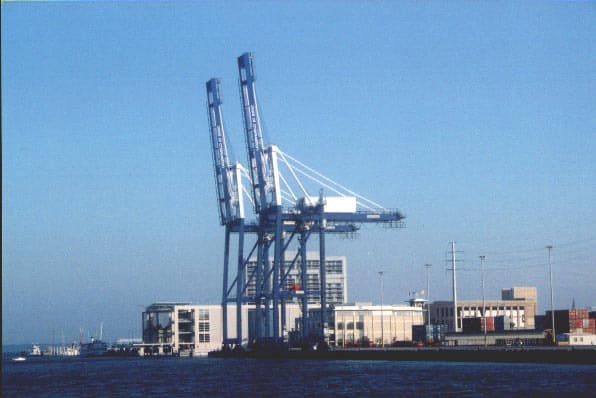In the realm of legal proceedings, each decision made by the U.S. Supreme Court holds significant weight, shaping the landscape of law and setting precedents for future cases. In the marine insurance context, a primary legal issue that has been repeatedly litigated in the last few years between policy holders and insurers has been whether insurance policy provisions unilaterally selecting the law of a jurisdiction unrelated to the parties or the risk will govern disputes arising out of the insurance policy over the laws of the forum where the policy was issued, or where the loss occurred, or where the parties are located. These clauses in an insurance policy are called choice of law provisions. Why does it matter? Because the laws differ from state to state, and some states have laws that strongly favor insurers where others have more consumer protections.
In 1955 when SCOTUS decided Wilburn Boat Co. v. Fireman’s Fund Ins. Co.,[1] courts were directed to look to state law with regard to any legal issue that is not governed by an entrenched principle of admiralty law when interpreting marine insurance contracts – a decision generally in favor of the insured because. As we discuss below in more detail, most states have consumer protection statutes addressing bad faith denials and claims handling practices that have been determined to not be entrenched within the maritime law and have been applied to benefit policy holders in many cases. At that time, most insurance policies were silent with regard to a choice of applicable law by agreement and the courts would choose the law applicable to the case by analyzing relevant factors such as the jurisdiction where the parties were located, the jurisdiction where the loss occurred, and the jurisdiction where the contract itself was formed or where the obligations were performed. Since Wilburn Boat, some insurers have begun to insert choice of law provisions in their contracts choosing New York law where no entrenched principles of maritime law exist – even where New York is unrelated to the parties and the risk. A split of opinion has developed among the U.S. Appellate Courts as to whether or not a choice of law provision selecting a jurisdiction unrelated to the parties or the risk in a marine insurance policy is enforceable.
All states on the Atlantic Coast of the United States, with the notable exception of New York, have passed laws that allow an insured to sue an insurance company when that insurer arbitrarily denies a claim without a good faith basis or otherwise fails to act in good faith in its investigation or handling of the insured’s claim and to collect either attorneys’ fees or exemplary damages or both under the right circumstances. Bad faith statutes are designed to protect the insured and curtail bad behavior by the insurer. Further, each state has its own take on insurance contract interpretation, and New York law takes a decidedly pro-insurer stance on many insurance issues where other states have more consumer-friendly laws. The choice of law provision in your marine insurance policy – especially one that chooses New York law – may make a huge difference on an insurer’s motivation to timely investigate and pay claims that are within coverage set forth in the policy and may even determine whether you have coverage at all or whether your policy is void because you have unknowingly violated pro-insurer provisions of New York law in conjunction with your policy’s language.
Over the last few years, more marine insurers have begun recognizing the relative benefits of including a New York choice of law provision in their contracts. Insureds, however, and many insurance brokerages selling these policies, remain mostly ignorant of the potential consequences of these provisions in the policies that they are buying. The differences of opinion regarding whether these provisions are enforceable was recently resolved by the United States Supreme Court in favor of the insurer in Great Lakes Ins. SE v. Raiders Retreat Realty Co.[2] The outcome of this case carries implications not only for the parties involved but also for the broader marine insurance landscape.
The protracted legal battle stemmed from a dispute between Great Lakes Insurance SE, an insurance company organized in Germany and headquartered in the United Kingdom, and Raiders Retreat Realty Co., a Pennsylvania business. Raiders purchased a marine insurance policy from Great Lakes. The policy contained a choice of law provision that New York law would govern disputes arising out of the policy. When the insured’s boat ran aground in Florida, Great Lakes denied coverage. The basis for the denial was that the boat’s fire suppression systems, which were completely unrelated to the loss as in Wilburn Boat, had not been maintained. At its core, the case dealt with what law should apply to an insurance policy in the context of property damage caused to a vessel by a grounding. The following litigation began in the Eastern District of Pennsylvania. Raiders argued that because the marine insurance policy was formed and purchased in Pennsylvania, that Pennsylvania state law should apply. Great Lakes argued, and the District Court agreed, that New York law should apply because of the underlying marine insurance policy’s choice-of-law provision. Raiders appealed to the U.S. Court of Appeals for the Third Circuit which reversed the prior decision and held that, while choice of law provisions is maritime contracts are generally enforceable, the provisions are subject to the strong public policy of the state, such as consumer protection, where the suit was filed. However, the U.S. Supreme Court disagreed and held that there was already an established, federally entrenched maritime rule upholding choice of law provisions in maritime contracts – subject to narrow exceptions that were not applicable. The Court reasoned that Article III of the U.S. Constitution’s grant of federal jurisdiction to “all Cases of admiralty and maritime Jurisdiction,” contemplates a system of maritime law “’coextensive with, and operating uniformly in, the whole country.’”[3] The rule appearing to arise out of Great Lakes is essentially that: 1) if an established federal rule exists, the court must apply it (entrenchment); 2) if no such rule exists, the court may create one to promote uniformity; and 3) if no federal rule exists and the court has not created one, only then the court would apply state law. The latter is similar to what Wilburn Boat has been generally understood to have held.
One primary outcome from Great Lakes is that marine insurer can now confidently select laws that are most favorable to their interests – including the laws of New York – without regard to whether that legal jurisdiction has any connection to the contracting parties or the incident giving rise to the insured’s claim. Because New York law is so favorable to insurers, we may see an uptick in marine insurance policies that have a New York choice of law provision. Because maritime law applies not only to commercial maritime insurance but also to policies covering recreational vessels of all kinds, it is important for consumers to understand the potential impacts of this decision and to read their marine insurance policies carefully prior to binding coverage. That alone may not be enough to understand the implications of the wording, however, and consumers with questions regarding the potentially complex consequences of policy provisions should consult with a maritime attorney to make sure that they understand what coverages their policy would afford and any potential pitfalls.
Understanding marine insurance isn’t easy and you should have a competent maritime attorney to assist you when necessary. The attorneys at Cooper & Bilbrey, P.C. are experienced in dealing with marine insurance and other areas of maritime law. We can help you review and provide guidance in understanding the complex legal provisions in marine insurance contracts. We are also experienced in litigating against insurance companies when they do not uphold their end of the insurance policy that you have been paying monthly premiums on. Give us a call to speak to an experienced maritime attorney today!
[1] 348 U.S. 310 (1955).
[2] 601 U.S. ___ (2024) (Docket No. 22-500).
[3] Id. (citing Norfolk Southern R. Co. v. James N. Kirby, Pty Ltd., 543 U.S. 14, 28 (2004) (quoting American Dredging Co. v. Miller, 510 U.S. 443, 451 (1994))).
Important Notice: The information in this article is not, nor is it intended to be, legal advice, which requires an in-depth knowledge of the facts of your particular circumstances. The law is ever-changing, and this article is not often updated and may be out-of-date or incorrect when applied to the circumstances of your issue. You should consult an attorney for advice regarding your individual situation. We invite you to contact us and welcome your calls and emails if you would like to discuss your matter with us.
Areas of Practice:
Admiralty and Maritime Law, U.S. Coast Guard Suspension & Revocation Proceedings, Personal Injury, Wrongful Death, Construction Law, Business Law, and other Civil Matters
Bar Admissions:
South Carolina 2018
U.S. District Court, District of South Carolina 2019
U.S. Court of Federal Claims 2019
Education:
Charleston School of Law, Charleston, South Carolina, J.D. Cum Laude, 2018
Tennessee Technological University, Cookeville, TN, B.S. Business Administration, 2010
Professional Associations and Memberships:
Charleston County Bar Association
South Carolina Bar Association
American Association for Justice
South Carolina Association for Justice
Southeastern Admiralty Law Institute (SEALI), Port Director 2021-2024
Propeller Club of Charleston
Captain’s License – MMC with 100 Ton and Towing Endorsements
Charleston County Rescue Squad
Publications:
Recent Maritime Law Developments: U.S. Supreme Court and the First, Second, Third, and Fourth Circuits, SEALI Annual Seminar (2020)











